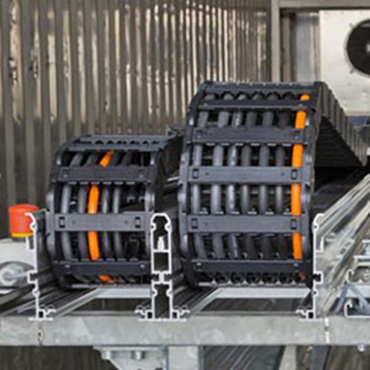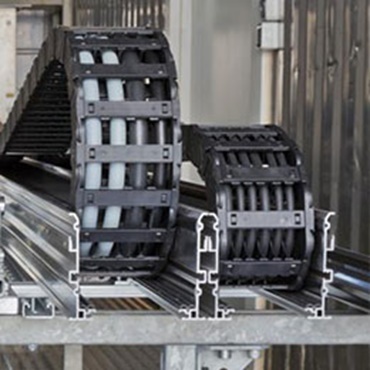After selection of your ZIP code, we designate the relevant staff to attend to you at once.
After selection of your ZIP code, we designate the relevant staff to attend to you at once.


Wherever high-intensity production is required, a heat-resistant cable provides reliability. It is designed for extreme conditions and proves its worth in any area where both heat resistance and flexibility are required, such as the use of energy chains for long distances.
igus offers advanced polymer products for professional use. During the development, special emphasis is on ensuring that all products and systems are coordinated. A reliable operation even under high load and a long service life are prerequisites for developments and innovations to turn into volume production. To enable a heat-resistant cable to be fully operational for a long period, igus produces it using the chainflex(R) process. The material absorbs the heat expansion and contraction when the temperatures drop, and fatigue is prevented by the high elasticity. This high-quality jacket structure is complemented by the interior of the cable, because core, stranded wires and stranding are also optimised for movement.
These valuable performance features make igus heat-resistant cable a favourite in places where constant inspection and maintenance is difficult and expensive. The fields of application include the steel industry and plastics processing, but also the sauna industry. The heat-resistant cables from igus are ideal partners for, among others, the igus tribo-filament, which can withstand temperatures of up to 180°C. Each cable can only be as good as accessories and supplementary parts allow it. That's why we also offer plug-in connectors, guide trough modular kits or strain relief systems for a complete application solution.
Monday to Friday from 7 am - 8 pm.Saturdays from 8 am- 12 pm.
24h